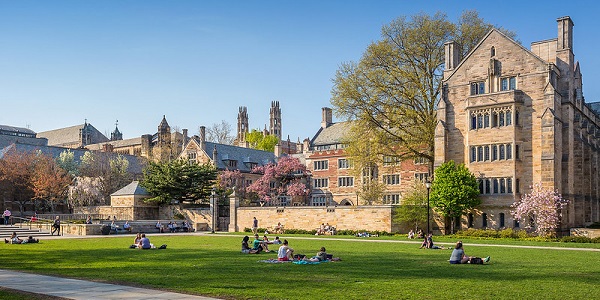Consider Peace of Mind with Valuable Items Insurance
Do you own any jewelry, antiques or other valuables? If so, you may need to purchase additional insurance for these items, as their full value may...
Manage your everyday finances with convenient accounts, flexible cards, and personalized service designed to fit your life.
At First Federal Bank, we offer flexible mortgage solutions for almost any situation, helping you secure the right financing for your dream home.
Business banking offers secure financial management, streamlined transactions, credit options, and tools to help businesses grow efficiently and sustainably.
2 min read
First Federal Bank : December 6, 2023 10:00:00 AM EST

 Whether you’re planning for yourself or a loved one, heading to college involves major decision-making. What will you study? Should you stay close to home or spread your wings? Is a traditional college experience right for you? Or is an online program the way to go? Probably the most stressful concern is how to pay for higher education. That’s where location and type of institution can be the determining factors to your educational pursuits. Here is a closer look at financial considerations of private vs. public colleges:
Whether you’re planning for yourself or a loved one, heading to college involves major decision-making. What will you study? Should you stay close to home or spread your wings? Is a traditional college experience right for you? Or is an online program the way to go? Probably the most stressful concern is how to pay for higher education. That’s where location and type of institution can be the determining factors to your educational pursuits. Here is a closer look at financial considerations of private vs. public colleges:
Transportation costs
No matter what type of college you choose, public or private, you’ll need to determine the cost of transportation for your options. A college you can commute to while you live at home will save you big bucks compared to room and board expenses at a college you would live at. And, that cost savings can apply to both private and public colleges.
Tuition fees
Big state public schools, especially ones with impressive reputations, count on large enrollments. And, each year these institutions receive a lot of applicants. Since there is such a large body of interested students, big public schools can afford to be picky about whom they accept and stingy with scholarships or available aid. Public colleges often have lower tuition compared to private counterparts, but private colleges may have more financial wriggle room and bigger allowances for scholarships and grants to help offset tuition fees. You really have to crunch the numbers and factor in the cost of tuition, what you’re willing to borrow, and what money you’re getting in scholarships.
“According to 2020 data from U.S. News, undergraduate students at public four-year institutions borrow less. Those who graduated in 2020 from a ranked private college borrowed $32,029 on average, while public college graduates took out an average of $26,627,” report Emma Kerr and Sarah Wood at USNews.com.
Financial aid availability and discounts
Private colleges can vary in size, from rivaling a big public college to a small, everyone-knows-everyone type of environment. If you’re hoping to secure placement at a private college due to a specific program or desired class size, you might be surprised at the amount of financial aid you can get, which may offset the higher cost of tuition. Most likely it may be more than what a public college can offer.
“Both public and private colleges provide federal financial aid to students. Private institutions, however, often have more money available to award grants and scholarships due to their large endowment funds. In addition, they frequently offer more sizable tuition discounts than public schools,” notes Tyler Epps, writer for BestColleges.com.
If private is your choice, be sure to find out if your chosen school is for-profit or nonprofit. You might earn a better educational experience from a nonprofit one, he adds.
Don’t let the classification of public or private be your sole reason for choosing a school. There are so many financial variables to consider from each option. Do your research and calculate all the numbers so you can get a better view of the overall financial requirements from the schools on your short list.

Do you own any jewelry, antiques or other valuables? If so, you may need to purchase additional insurance for these items, as their full value may...

2 min read
If you’re like many Americans, you probably receive your health insurance through your job. However, when it comes time to retire, you’ll be faced...

Between paying for tuition and covering living expenses, you may find it challenging to save up money while in college. However, by following these...
Manage your accounts, make payments, and more.
Open an account with us.